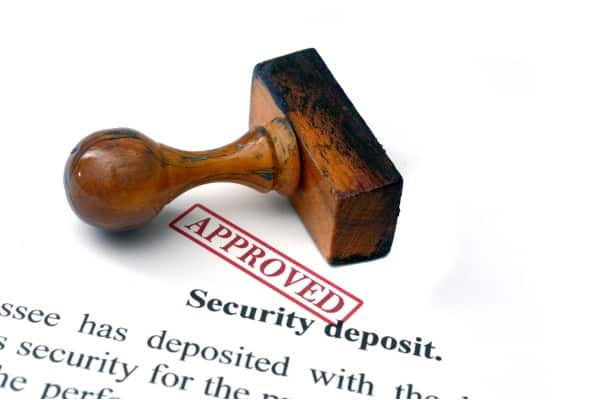What a Landlord Cannot Do in Kansas – Key Restrictions

When you rent a place to call home, you expect fair treatment and a safe space to live. Understanding landlord tenant laws in Kansas helps protect you from unexpected problems and keeps the landlord tenant relationship clear and respectful. Kansas law outlines what a landlord cannot do in Kansas, ensuring your rights and outlining when to stand up for them.
Some landlords in Kansas might try to cut corners or skip important steps, leaving tenants feeling powerless. But Kansas tenant laws set firm rules that protect both the tenant and property owner. If a landlord fails to follow these rules, they can face serious legal trouble and heavy fines.
So what exactly can’t landlords do? What should you watch for to keep your rental experience stress-free? Stick around as we uncover key restrictions, recent updates, and local ordinances that every tenant should know.
Contents
- 1 Kansas Landlord-Tenant Law
- 1.1 1. A Landlord Cannot Evict an Active Duty Service Member
- 1.2 2. Retaliatory Actions Against Tenants Are Strictly Prohibited
- 1.3 3. Discrimination in Tenant Selection Is Not Allowed
- 1.4 4. Security Deposits Are Subject to Legal Restrictions
- 1.5 5. Landlords Must Maintain Safe and Habitable Living Conditions
- 1.6 6. Lease Termination Must Follow the Law – Unlawful Termination Is Prohibited
- 1.7 7. Excessive or Unjustified Fees Cannot Be Imposed on Tenants
- 1.8 8. Improper Entry or Violation of Tenant Privacy Is Not Permitted
- 1.9 9. Utilities and Services Cannot Be Improperly Shut Off
- 2 Conclusion
- 3 FAQs
Kansas Landlord-Tenant Law
The Kansas Residential Landlord and Tenant Act shapes the entire rental experience, guiding how landlords and tenants interact from the first handshake to the last rent payment. This law is more than a simple set of rules; it serves as a shield that protects you from unexpected surprises and outlines exactly what a landlord cannot do in Kansas.
Under Kansas tenant laws, landlords must keep each rental unit in a safe, livable condition. Imagine moving into an apartment with leaking pipes or broken locks. In these cases, landlords in Kansas are required to make necessary repairs and follow housing codes to ensure your safety and comfort. On the flip side, you must respect the lease terms and pay rent on time to keep the landlord-tenant relationship strong.
While Kansas does not set rent control laws, this freedom does not mean landlords can surprise you with sudden price jumps. Kansas law requires landlords to clearly outline rental terms in the lease agreement and provide proper notice if they plan to raise rent. If a landlord tries to increase the monthly rent without advance notice or violates the written agreement, they could face serious consequences.
The act also touches on issues like security deposit laws, anti-discrimination protections under the federal fair housing act, and the eviction process. All these pieces work together to give both the tenant and landlord a clear roadmap.
With this foundation in place, it becomes easier to understand the exact limits of a landlord’s power and your rights as a tenant. Let’s explore what landlords must never do and what they are obligated to handle properly.
1. A Landlord Cannot Evict an Active Duty Service Member
Under the federal Servicemembers Civil Relief Act, landlords in Kansas are strictly prohibited from evicting tenants who are on active military duty or their dependents for unpaid rent without first obtaining a court order.
Courts can also delay the eviction process for up to 90 days or even longer, allowing service members to focus on their duty without worrying about losing their rental unit.
Kansas landlords must always verify a tenant’s active-duty status before moving forward with eviction. This step is not just a courtesy but a legal requirement under both Kansas law and federal laws.
If a landlord skips this process and tries to evict anyway, they risk heavy penalties and possible legal action that can impact their ability to manage rental property in the future.
Another important protection under the SCRA is the ability for service members to terminate a lease agreement early if they receive active-duty orders after signing. This means they can leave without facing penalties, making it easier to handle sudden relocations.
When landlords understand these rules, it strengthens the landlord-tenant relationship and helps avoid serious disputes.
2. Retaliatory Actions Against Tenants Are Strictly Prohibited
Speaking up about mold in the walls or broken heating should never lead to punishment. Kansas tenant laws make it clear that landlords cannot retaliate against tenants who exercise their legal rights.
Whether you file a complaint about unsafe living conditions, report code violations, or decide to join a tenants’ union, landlords in Kansas cannot respond with threats or sudden changes that make your life harder.
Retaliatory actions include trying to evict tenants, raising monthly rent without proper notice, or cutting essential services within six months of a tenant taking a protected action. These moves are not only unfair but also violate Kansas landlord-tenant law and local ordinances, including stricter rules in cities like Topeka.
However, it is important to know that landlords do have legitimate reasons to evict tenants. Actions like nonpayment of rent, serious lease violations, or damage to the rental property are valid grounds and are not considered retaliatory if handled correctly under the lease agreement.
If a landlord fails to follow these anti-retaliation rules, tenants have strong protections. You can use retaliation as a defense in an eviction process or even seek damages under Kansas law, specifically K.S.A. 58-2563. This empowers tenants to stand up for necessary repairs and fair treatment without fearing sudden eviction or unexpected rent hikes.
3. Discrimination in Tenant Selection Is Not Allowed
Choosing a place to live should always be about finding a safe, comfortable home, not about your background or personal traits. Under the federal Fair Housing Act and Kansas landlord-tenant laws, landlords and property owners are strictly forbidden from discriminating against prospective tenants.
This means landlords cannot deny you a rental unit, refuse to negotiate a lease agreement, or offer different lease terms based on race, color, religion, national origin, sex, familial status, or disability. For example, a landlord cannot decide to reject your application simply because you have children or refuse to show you certain rental property options because of your religion.
Even suggesting misleading information about unit availability or creating stricter lease terms for certain groups violates both federal and Kansas tenant laws.
Discrimination damages trust and breaks the landlord-tenant relationship before it even starts. By following federal fair housing laws and local rules, landlords protect themselves from legal action while building a fair and open rental environment for everyone.
4. Security Deposits Are Subject to Legal Restrictions
Paying a security deposit often feels like handing over a safety net for your new home, but in Kansas, landlords cannot handle these funds however they please. Kansas landlord-tenant laws set clear limits to keep this money protected and ensure fairness from move-in to move-out.
For an unfurnished rental unit, the security deposit cannot exceed one month’s rent. If the place comes furnished, landlords may collect up to one and a half months’ rent. After receiving it, landlords must place the deposit in a separate, federally insured account. Mixing it with personal or business money is not allowed, helping you avoid any surprise losses down the road.
Once you move out, Kansas landlords have 30 days to return your deposit. If any money is withheld for damages beyond ordinary use, they must give you a written record detailing each charge. Although state law does not require interest to be paid on deposits, you and your landlord can include this in your lease agreement if you both agree.
Tenants also have the right to ask where their deposit is being held and can request the name and address of the bank at any time. These rules give you more control over your money and set clear expectations throughout your stay.
5. Landlords Must Maintain Safe and Habitable Living Conditions
A rental home should feel like a safe retreat, not a constant source of stress. Kansas landlords carry a legal duty to maintain each rental unit so it remains livable and secure. Under Kansas landlord tenant laws, property owners must meet all building and health codes, making sure essential services like hot and cold water, heat, and trash removal are always available.
Proper waste management is not optional. Landlords must provide garbage receptacles and arrange for regular removal, keeping the property clean and preventing health hazards. Ignoring these responsibilities can lead to serious consequences and strain the landlord-tenant relationship.
If a landlord fails to make necessary repairs or ignores dangerous conditions, tenants have options. You can submit written repair requests, and in some cases, after legal advice, you might withhold rent or even end the lease agreement if the issues put your safety at risk.
Keeping a written record detailing all requests and problems is essential to protect your rights and strengthen your case if disputes arise.
6. Lease Termination Must Follow the Law – Unlawful Termination Is Prohibited
Ending a lease is a big step for both the tenant and the landlord, and Kansas law leaves no room for shortcuts. Landlords in Kansas must follow strict rules when it comes to terminating a lease agreement, and skipping these steps can lead to serious legal trouble.
For tenants who fall behind on rent payments, landlords are required to give a 3-day written notice to pay or move out. When it comes to other lease violations, landlords must usually provide a 14-day notice to fix the issue, followed by an additional 16 days to leave if the problem isn’t resolved. In a month-to-month lease, tenants must receive at least 30 days’ notice to vacate, and landlords are not required to provide a reason for ending the agreement.
However, landlords cannot force tenants out without going through these legal steps. Self-help evictions, like changing locks or removing a tenant’s belongings without a court order, are illegal and can result in hefty penalties and liability for damages.
There are exceptions when tenants can legally end a lease early without facing penalties. Service members called to active duty and tenants living in a unit deemed uninhabitable have the right to break the lease under Kansas tenant laws and the Servicemembers Civil Relief Act.
7. Excessive or Unjustified Fees Cannot Be Imposed on Tenants
No one likes discovering unexpected charges tucked into a rental bill. In Kansas, landlords are required to keep all fees fair and upfront in a lease agreement to avoid leaving tenants feeling blindsided.
While state law does not set a firm limit on late fees, these charges must be reasonable and outlined clearly in the lease agreement. If a landlord tries to slip in extra or excessive costs, courts often refuse to enforce them.
Beyond late fees, landlords cannot hold tenants responsible for normal wear and tear. Every day signs of living, like slight carpet fading or small scuffs on walls, are not valid reasons to demand extra payment. Fees should only apply when there is real damage or a clear violation of lease terms.
All costs must be documented in writing and comply with Kansas landlord-tenant law and any local rules. Clear communication about fees helps protect both the tenant and the property owner, making sure there are no surprises when rent is due.
8. Improper Entry or Violation of Tenant Privacy Is Not Permitted
Your home should feel like your personal space, not a place where someone might show up unannounced. In Kansas, landlord tenant laws make it clear that your privacy matters and landlords must respect strict rules before stepping inside.
A landlord must provide reasonable notice before entering your rental unit, which usually means at least 24 hours. The only exception is an emergency, like a burst pipe or a fire, when quick access is needed to protect the property and ensure safety.
Entering without notice for non-urgent reasons is a serious violation that can lead to tenant complaints or even lawsuits.
Kansas law also guarantees your right to quiet enjoyment, giving you the freedom to relax and feel secure in your rental home. Whether you are hosting guests or enjoying a quiet evening alone, your landlord cannot interrupt that peace without following proper notice requirements.
9. Utilities and Services Cannot Be Improperly Shut Off
Reliable utilities are the backbone of a livable home, and Kansas law makes sure tenants never lose these essential services as a form of pressure. Landlords are strictly forbidden from turning off water, electricity, or heat to force someone out or punish a tenant for asserting their rights.
Service interruptions are only allowed for valid reasons, such as urgent repairs or scheduled maintenance, and tenants must always receive advance notice.
Cutting off utilities without a legitimate purpose or proper warning not only breaks Kansas landlord-tenant laws but also risks serious legal and financial consequences for the landlord.
If a tenant experiences an improper shutoff, they can take legal steps to restore services and may be entitled to damages. Protecting access to basic needs keeps the rental environment safe and fair, reinforcing the importance of clear, lawful practices.
Conclusion
Kansas tenant laws give you strong tools to protect your peace of mind, from preventing improper evictions to ensuring your rental unit stays safe and livable. Knowing what a landlord cannot do in Kansas helps you feel confident when signing a lease agreement or handling issues with your rental property.
Always keep a written record detailing all requests and communications, and do not hesitate to seek legal guidance if you think your rights under Kansas landlord-tenant law or federal fair housing laws have been violated.
If you need to verify a landlord-tenant relationship involving active duty status, use SCRACVS to confirm military service quickly and securely. Click here to sign up at SCRACVS and verify the active duty status.
FAQs
Can a landlord refuse to rent to someone with a service animal?
No. Under federal fair housing laws and Kansas landlord-tenant law, landlords cannot refuse to rent to someone because they have a service animal. This would be considered discrimination based on disability. Landlords also cannot impose extra fees or change lease terms because of a service animal. Always review your lease agreement and document any unfair treatment in a written record detailing your interactions.
Can a landlord charge for normal wear and tear on the property?
No. Kansas rental laws clearly state that landlords cannot charge tenants for normal wear and tear, such as minor carpet wear or small nail holes. Charges can only apply to actual damages that go beyond everyday use or lease violations. Security deposit laws require landlords to provide an itemized list of any deductions and return remaining funds within 30 days.
What are my options if my landlord fails to make necessary repairs?
If a landlord fails to handle necessary repairs, you have the right to submit a written notice requesting fixes. Depending on the severity, Kansas tenant laws may allow you to withhold rent (with legal advice), request rent abatement, or even break the lease agreement. Always keep a written record detailing repair requests, and consider consulting local laws or legal aid before taking action.
What can I sue my landlord for in Kansas?
Tenants can sue landlords in Kansas for issues like violating privacy rights, failing to return a security deposit, or not providing a safe and habitable rental unit. You may also take legal action for improper eviction or violations of the federal Fair Housing Act. Before filing a claim, gather all written notices, lease agreements, and any tenant screening reports to strengthen your case.




